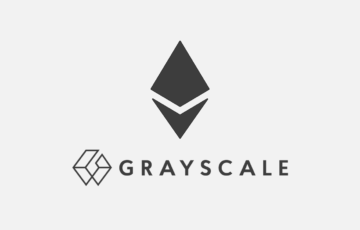

Polkadotの価格DOT
Polkadotに投票しましょう!
今日のPolkadotの価格
DOTの最高価格はいくらですか?
DOTの最安価格はいくらですか?
Polkadotの価格予測
DOTの買い時はいつですか? 今は買うべきですか?それとも売るべきですか?
2026年のDOTの価格はどうなる?
2031年のDOTの価格はどうなる?
Polkadotの価格履歴(JPY)
 最低価格
最低価格 最高価格
最高価格 
Polkadotの市場情報
Polkadot市場
Polkadotの集中度別保有量
Polkadotの保有時間別アドレス

Polkadotの評価
Polkadot (DOT)について
Polkadotとは?
Polkadot(DOT)は、複数の専門チェーンを1つの統一されたネットワークに接続する次世代ブロックチェーン・プロトコルです。これは、完全に機能的でユーザーフレンドリーな分散型ウェブを促進するスイスの財団であるWeb3財団によって構想され、立ち上げられました。その創設を主導したのは、Gavin Wood博士です。彼はEthereumの共同創設者の一人であり、そのプログラミング言語「Solidity」の発明者でもあります。
Polkadotの基本的な目的は、ブロックチェーン・ネットワークがシームレスに連携し、相互運用性を促進できるようにすることです。現在のブロックチェーンを取り巻く環境は、孤立した多数のブロックチェーンが独立して稼働していますが、Polkadotはブロックチェーンのインターネットを確立することを目指しており、そこでは複数のチェーンが安全で信頼のない環境で通信し、取引することができます。
この革新的なプラットフォームは、パブリックなパーミッションレス・ネットワークから、プライベートなコンソーシアム・チェーン、オラクル、その他まだ知られていない将来の技術開発まで、様々なブロックチェーンをサポートするように設計されています。Polkadotの順応性は、ユーザーがコントロールする分散型ウェブというプラットフォームのビジョンを示しています。
関連資料
ホワイトペーパー:https://assets.polkadot.network/Polkadot-whitepaper.pdf
公式ウェブサイト:https://polkadot.network/
Polkadotの仕組み
Polkadotの仕組みを理解するためには、主にリレー・チェーン、パラチェーン、ブリッジで構成されるそのアーキテクチャを知る必要があります。
リレーチェーン
リレーチェーンはPolkadotの中心であり、ネットワークの共有セキュリティ、コンセンサス、チェーン間の相互運用性を担っています。接続されたチェーンからのトランザクションを検証し、最終決定することで、ネットワーク全体のセキュリティを確保します。
パラチェーン
パラチェーンは、Polkadotエコシステム内で並行して動く個々のブロックチェーンです。それぞれのパラチェーンは、固有の機能と用途に合わせてカスタマイズされたユニークなものであり、すべてのパラチェーンはリレーチェーンが提供するセキュリティの恩恵を受けています。パラチェーンは、クロスチェーン・メッセージ・パッシング(XCMP)を通じて、リレー・チェーンやパラチェーン同士で通信を行います。
ブリッジ
ブリッジとは、PolkadotとEthereumやBitcoinなどの外部ネットワークをつなぐ特別なブロックチェーンのことで、Polkadot内だけでなく、ブロックチェーン領域全体のチェーンの相互接続性を確保します。
Polkadotの運営は、プルーフ・オブ・ステークとビザンチンフォールトトレランの両方の側面を採用した、洗練されたコンセンサスメカニズムによって編成されています。ネイティブDOTトークンをステークしているバリデーターは、リレーチェーン上のブロックを生成し、パラチェーン取引を確認するために選択されます。一方、ノミネーターは、信頼できるバリデーターを選ぶことで、ネットワークの安全性を確保します。その他の役割には、パラチェーン取引を収集し、検証者のために証明を作成するコレーターや、ネットワークを監視し、悪意のある活動を報告するフィッシャーマンなどがあります。
DOTトークン
DOTトークンはPolkadotネットワークのネイティブ暗号資産です。Polkadotのエコシステム内で複数の役割を果たし、プラットフォームの運営、ガバナンス、セキュリティにおいて重要な役割を果たしています。
ネットワーク運営における役割
DOTトークンは主にネットワークの運営に使用されます。参加者はDOTトークンを結合して、新しいパラチェーン(並列ブロックチェーン)を追加したり、他の業務に従事したりすることができます。この結合プロセスは、ネットワーク全体のセキュリティと安定性を維持するために極めて重要です。
ガバナンスにおける役割
DOTトークンはPolkadotのオンチェーンガバナンスにおいて重要な役割を担っています。DOT保有者は、新しいパラシェーンの追加やシステムのアップグレードなど、ネットワークの変更案について投票する権利を有します。これにより、すべてのDOT保有者が発言権を持つ、完全に分散化された民主的な意思決定プロセスが可能になります。
セキュリティにおける役割
Polkadotのエコシステムでは、DOTトークンはステーキングと呼ばれるメカニズムを通じて、善行へのインセンティブを与えるためにも使用されます。バリデーターは、一種のセキュリティ預金としてDOTトークンをステークします。不誠実な行為をしたり、ネットワークを攻撃しようとしたりした者は、ステーク金が削減され、ステーク金の一部または全額を失うことになります。このメカニズムは、悪意のある活動からネットワークを保護するのに役立ちます。
相互運用性における役割
最後に、DOTトークンは異なるチェーン間の相互運用性を促進するために使用されます。クロスチェーン取引を処理するにはネイティブ・トークンが必要な場合が多く、PolkadotのエコシステムではDOTトークンがこの役割を果たします。
Polkadotの価格を決める要因
Polkadotの価格は、そのボラティリティと市場価値に寄与する無数の要因に影響されます。現在のPolkadot価格の主な決定要因の1つは、その有用性とブロックチェーンエコシステム内での採用です。Polkadotは、そのマルチチェーン・ネットワーク能力を高く評価され、クロスチェーンのデータと資産の移動を容易にします。そのため、ブロックチェーン分野における相互運用性の礎石となります。そのネイティブトークンであるDOTは、ネットワークガバナンス、ステーキング、ボンディングプロセスにおいて重要な役割を果たしています。Polkadotの上に構築されたり、Polkadotと統合されたりするプロジェクトが多ければ多いほど、DOTの需要は高まり、その結果、DOTの時価総額と全体的な価値に影響を与えます。
Polkadotのスケーラビリティとクロスチェーン機能は、そのエコシステムに重要なプロジェクトを引きつけ、その有用性をさらに高め、ひいては価格も上昇させています。したがって、Polkadotの価格予想に関心を持つ人は、その長期的価値を評価する際に、こうした技術的な利点を考慮する必要があります。
Polkadot価格予測やPolkadot価格投機におけるもう一つの重要な要因は市場心理であり、しばしばニュースサイクル、技術進歩、マクロ経済要因の影響を受けます。Polkadotの価格チャートとPolkadotの価格分析に反映される投資家の行動は、ネットワークのアップグレード、パートナーシップ、ステーク報酬に関するアップデートに反映することができます。例えば、Polkadotのインフレ金融政策は、ネットワークへの参加を奨励するように設計されており、DOTの供給量を動的に調整することができ、短期および長期のPolkadot価格予測に影響を与えます。
Polkadotの購入を計画している場合、またはPolkadotの将来の価格に関心がある場合は、規制ニュースや広範な市場動向などの外部要因も考慮することが極めて重要です。これらの外部からの影響は、Polkadotのリアルタイムの価格(一般的にPolkadot価格ライブと呼ばれる)に即座に影響を与える可能性があります。したがって、包括的なPolkadotの価格更新は、その現在および将来の価格について総合的なビューを提供するために、本質的な有用性と広範な市場センチメントの両方を考慮する必要があります。
まとめ
Polkadotは単なるブロックチェーン・プロトコルではありません。複数のブロックチェーンが共存し、シームレスに相互作用する分散型ウェブのビジョンなのです。相互運用性、スケーラビリティ、そしてユーザー中心のアプローチに重点を置くことで、Polkadotは分散化された未来のインターネットに不可欠な存在となります。本稿では、Polkadotのユニークなアーキテクチャ、機能、DOTトークンの役割、そして分散型ガバナンスを徹底的に理解するために、これらの各側面について掘り下げていきます。
Polkadotの関連記事
DOTから現地通貨
- 1
- 2
- 3
- 4
- 5
Polkadot(DOT)の購入方法

無料でBitgetアカウントを作成します

アカウントを認証する

PolkadotをDOTに交換
DOT無期限先物を取引する
Bitgetに登録し、USDTまたはDOTトークンを購入した後、DOT先物やマージン取引を含むデリバティブ取引を開始することができ、収入を増やすことができます。
DOTの現在価格は¥536.52で、24時間の価格変動は+7.67%です。トレーダーはDOT先物をロングまたはショートすることで利益を獲得できます。
エリートトレーダーをフォローして、DOTのコピートレードを始めましょう。
Polkadotのニュース





もっと購入する
よくあるご質問
Polkadotは、他のブロックチェーンが直面するスケーラビリティの問題をどのように解決しようとしているのか?
Polkadot(DOT)の主な目的は何ですか?
DOTのイニシャル・コイン・オファリング(ICO)時の価格は?
Polkadotは良い投資先か?
DOTのステーキングはどのように行われ、その価値にどのような影響を与えるのでしょうか?
Polkadotは採掘できるか?
Polkadotの現在の価格はいくらですか?
Polkadotの24時間取引量は?
Polkadotの過去最高値はいくらですか?
BitgetでPolkadotを購入できますか?
Polkadotに投資して安定した収入を得ることはできますか?
Polkadotを最も安く購入できるのはどこですか?
Polkadot(DOT)はどこで買えますか?
動画セクション - 素早く認証を終えて、素早く取引へ

Bitgetインサイト







































Polkadotのソーシャルデータ
直近24時間では、Polkadotのソーシャルメディアセンチメントスコアは3で、Polkadotの価格トレンドに対するソーシャルメディアセンチメントは強気でした。全体的なPolkadotのソーシャルメディアスコアは70,031で、全暗号資産の中で91にランクされました。
LunarCrushによると、過去24時間で、暗号資産は合計1,058,120回ソーシャルメディア上で言及され、Polkadotは0.09%の頻度比率で言及され、全暗号資産の中で30にランクされました。
過去24時間で、合計1,548人のユニークユーザーがPolkadotについて議論し、Polkadotの言及は合計907件です。しかし、前の24時間と比較すると、ユニークユーザー数は増加で12%、言及総数は増加で26%増加しています。
X(Twitter)では、過去24時間に合計21件のPolkadotに言及したポストがありました。その中で、5%はPolkadotに強気、0%はPolkadotに弱気、95%はPolkadotに中立です。
Redditでは、過去24時間にPolkadotに言及した18件の投稿がありました。直近の24時間と比較して、Polkadotの言及数が6%増加しました。
すべてのソーシャル概要
3